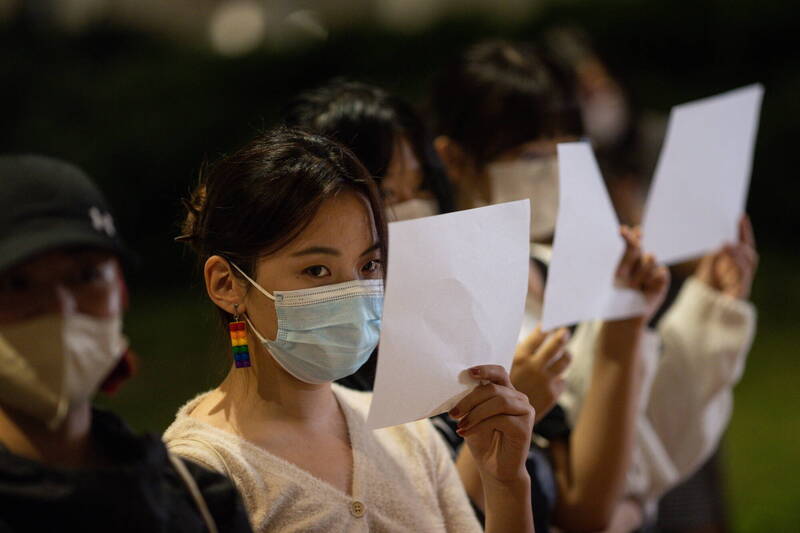China's strict anti-epidemic policies in the past three years, coupled with uncertain domestic employment prospects, have made many international students reluctant to return to China.
The picture shows the anti-zeroing "white paper movement" that broke out in various parts of China last year.
(European News Agency file photo)
[Compilation of Sun Yuqing/Comprehensive Report] China has strictly implemented the "zero clearing" measures for epidemic prevention for three years. Although the lockdown has been gradually lifted since the end of last year, the shadow left on Chinese society is difficult to eliminate.
Hong Kong's "South China Morning Post" reported on the 29th that many Chinese students who have witnessed China's "isolation" due to epidemic prevention for three years, coupled with their pessimistic outlook on China's future employment prospects, expressed that they would think twice about whether to return to China after graduation. question.
According to reports, there are more than 1 million international students in China, most of whom are located in the United States, the United Kingdom, Australia and other countries. Many of them told "Southern Morning" that the Beijing authorities' strict epidemic prevention and control over the past three years, as well as China's domestic claims Frustrated by the lack of bright job prospects.
Please read on...
Zoe Chiu, a Chinese student at the University of Southern California, said that after seeing Shanghai's months-long lockdown last year, where even basic rights to life were threatened, she felt "feeling" about returning to the country after graduation. Fear", "My motivation for living abroad has changed from yearning for Western culture to being afraid of living in China."
Stephanie Li, who recently graduated from the University of Melbourne, said that many local governments in China "exhausted all kinds of means such as closing the city to achieve political goals", so she now hopes to stay in a less politically charged society. Strong Australian.
Since Chinese students in most countries can seek short-term employment in the local area after graduation, studying abroad has always been a stepping stone for Chinese citizens to immigrate, and the epidemic has further fueled this trend.
Xiang Biao, director of the Max Planck Institute for Social Anthropology in Germany, said that during the closure of Shanghai, people realized that this was no longer an epidemic prevention policy, but a political decision, and people's voices and doubts were not taken seriously.
Chinese students studying abroad in Asia, Europe, and North America gathered on campus or outside the Chinese embassy during the previous "clearance" period to show solidarity with relatives and friends back home.
Regarding the wave of Chinese immigrants, Xiang Biao believes that due to domestic restrictions in China and immigration policies of various countries, Chinese immigrants will still be a minority group.
However, the relationship between the Chinese government and its people has indeed undergone an irreversible change.
